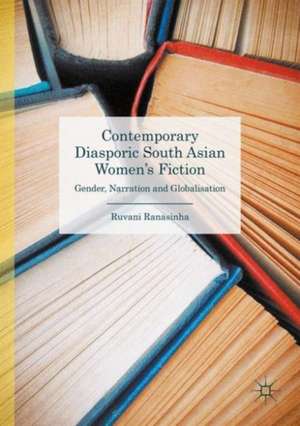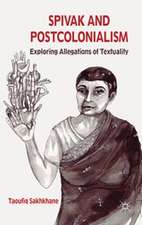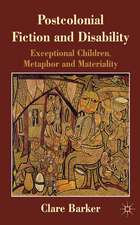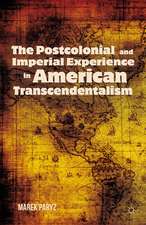Contemporary Diasporic South Asian Women's Fiction: Gender, Narration and Globalisation
Autor Ruvani Ranasinhaen Limba Engleză Hardback – 10 iun 2016
This book is the first comparative analysis of a new generation of diasporic Anglophone South Asian women novelists including Kiran Desai, Tahmima Anam, Monica Ali, Kamila Shamsie and Jhumpa Lahiri from a feminist perspective. It charts the significant changes these writers have produced in postcolonial and contemporary women’s fiction since the late 1990s. Paying careful attention to the authors’ distinct subcontinental backgrounds of Pakistan, Bangladesh and Sri Lanka – as well as India - this study destabilises the central place given to fiction focused on India. It broadens the customary focus on diasporic writers’ metropolitan contexts, illuminates how these transnational, female-authored literary texts challenge national assumptions and considers the ways in which this new configuration of transnational, feminist writers produces a postcolonial feminist discourse, which differs from Anglo-American feminism.
Preț: 528.80 lei
Preț vechi: 622.11 lei
-15% Nou
Puncte Express: 793
Preț estimativ în valută:
101.20€ • 105.38$ • 85.53£
101.20€ • 105.38$ • 85.53£
Carte tipărită la comandă
Livrare economică 11-25 martie
Preluare comenzi: 021 569.72.76
Specificații
ISBN-13: 9781137403049
ISBN-10: 1137403047
Pagini: 232
Ilustrații: XIII, 275 p.
Dimensiuni: 148 x 210 x 23 mm
Greutate: 0.45 kg
Ediția:1st ed. 2016
Editura: Palgrave Macmillan UK
Colecția Palgrave Macmillan
Locul publicării:London, United Kingdom
ISBN-10: 1137403047
Pagini: 232
Ilustrații: XIII, 275 p.
Dimensiuni: 148 x 210 x 23 mm
Greutate: 0.45 kg
Ediția:1st ed. 2016
Editura: Palgrave Macmillan UK
Colecția Palgrave Macmillan
Locul publicării:London, United Kingdom
Cuprins
Acknowledgements.- Introduction.- 1. Globalisation, labour, narrative and representation in Arundhati Roy, Monica Ali and Kiran Desai.- 2. War, violence and memory: gendered national imaginaries in Tahmima Anam, Sorayya Khan and contemporary Sri Lankan women writers.- 3. Resistance and religion: gender, Islam and agency in Kamila Shamsie, Tahmima Anam, Monica Ali and Ameena Hussein.- 4. Migration, gender and globalisation in Jhumpa Lahiri.- 5. Women writing postcolonial cities: Jhumpa Lahiri, Kamila Shamsie and Tahmima Anam.- Afterword.- Bibliography.- Index.-
Recenzii
“The book examines the interlinkages of gender with the narratives of a globalised world, each existing in a complex relationship with nation-states, their imaginaries, and with cognate concepts of rootedness and belonging. … Ranasinha’s book is thus an important intervention in the critical debates around the political purchase of diasporic, transnational, and cosmopolitan writing.” (Divya Mehta, Textual Practice, Vol. 32 (6), 2018)
“Ruvani Ranasinha’s new book provides an important re-evaluation of South Asian women writers, combining readings of canonical authors such as Arundhati Roy, Monica Ali and Kamila Shamsie with lesser-known figures such as Sorayya Khan and Tahmima Anam. … this book will undoubtedly prove to be a cornerstone critical text for the future development of postcolonial studies.” (Dominic Davies, Journal of Postcolonial Writing, 2017)
Notă biografică
Ruvani Ranasinha is a Reader in Postcolonial Literatures in the Department of English, King s College London
Textul de pe ultima copertă
This book is the first comparative analysis of a new generation of diasporic Anglophone South Asian women novelists including Kiran Desai, Tahmima Anam, Monica Ali, Kamila Shamsie and Jhumpa Lahiri from a feminist perspective. It charts the significant changes these writers have produced in postcolonial and contemporary women’s fiction since the late 1990s. Paying careful attention to the authors’ distinct subcontinental backgrounds of Pakistan, Bangladesh and Sri Lanka – as well as India - this study destabilises the central place given to fiction focused on India. It broadens the customary focus on diasporic writers’ metropolitan contexts, illuminates how these transnational, female-authored literary texts challenge national assumptions and considers the ways in which this new configuration of transnational, feminist writers produces a postcolonial feminist discourse, which differs from Anglo-American feminism.















